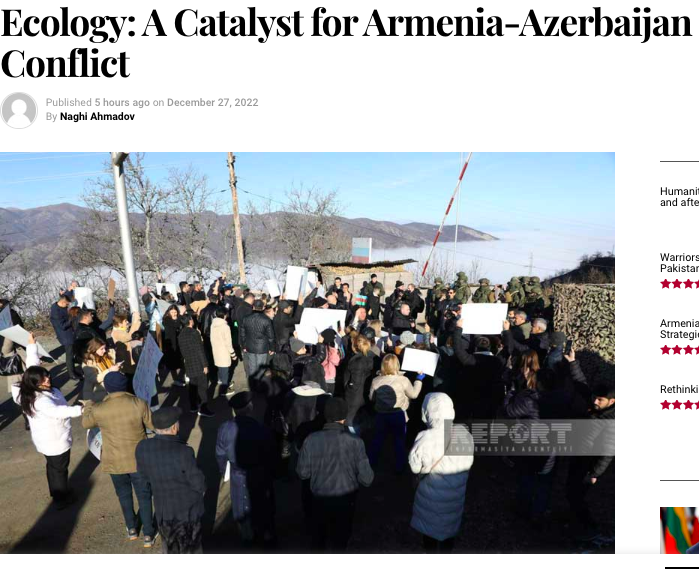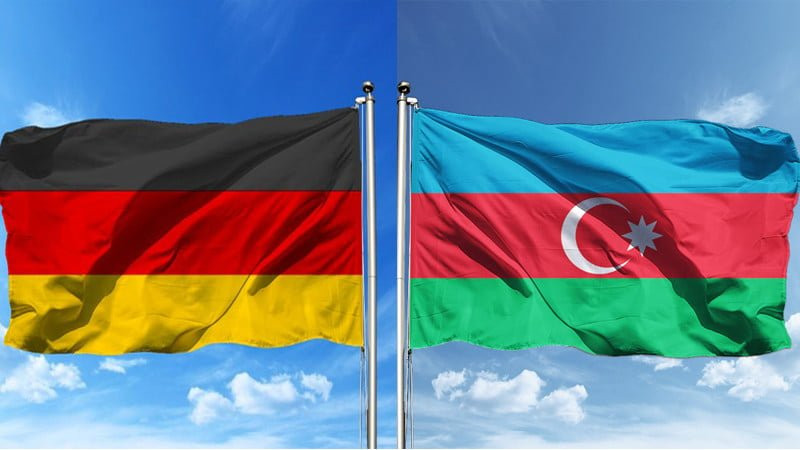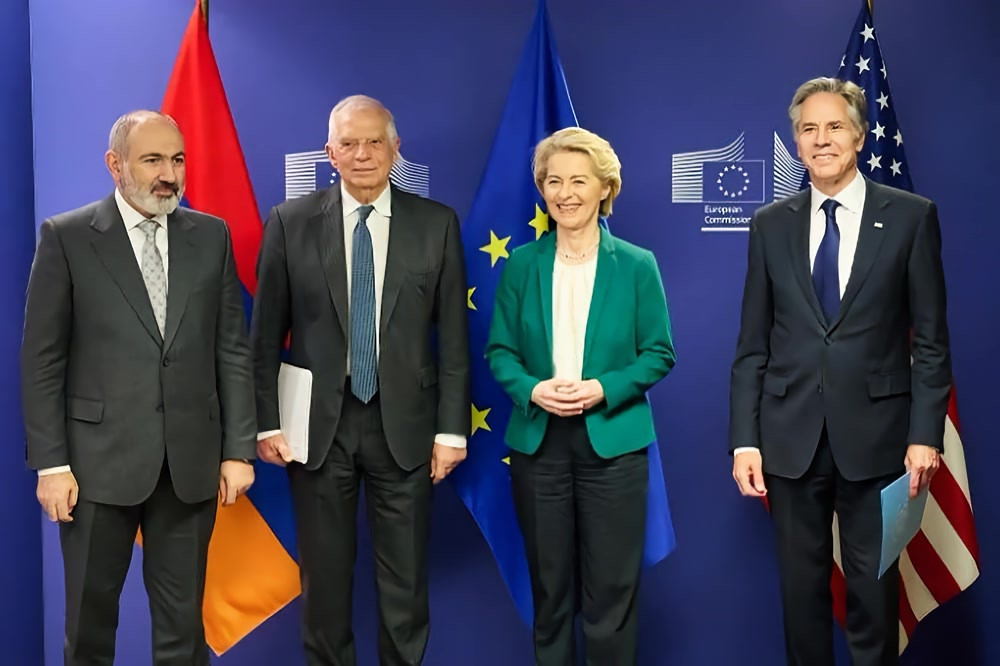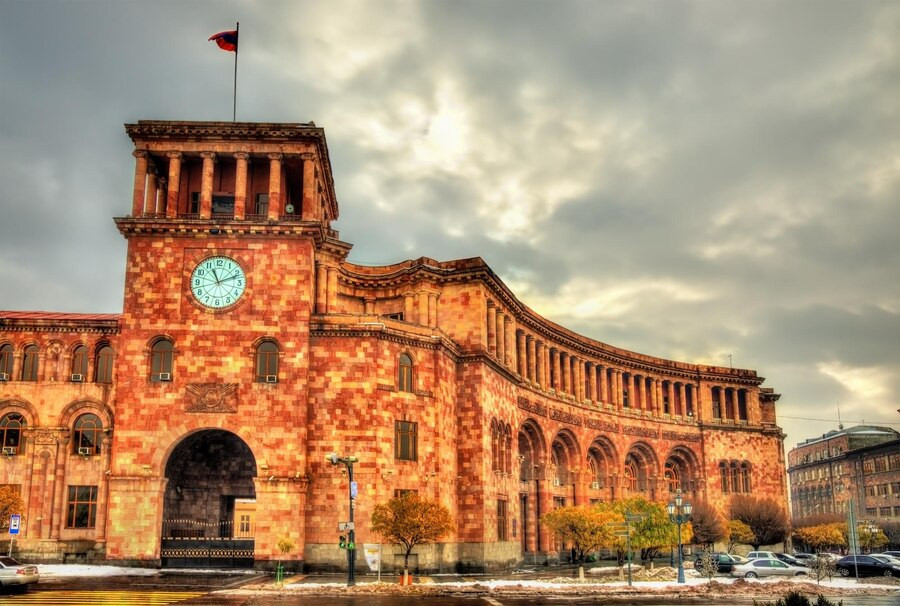Environmental protests in the recent days by Azerbaijani eco-activists on the Lachin road are increasingly attracting attention from international community. Inadmissibility of Azerbaijani specialists to the gold and copper molybdenum deposits in the areas under the temporary control of Russian peacekeeping forces to monitor the illicit exploitation, as well as increasing usage of the Lachin road to transport those minerals to Armenia are main protest triggers.
The protesters demand prevention of further plundering of natural resources by chanting “End the eco-terror”, and “End the environmental crimes.” To achieve the objective, they call for setting up a customs checkpoint along the Lachin road. The protest does not yet appear to stop soon, they are principally confident that they will not back down until their demands are met.
Previously, the Azerbaijani government has taken steps to address the illegal exploitation of mineral deposits through dialogue. On December 3 and 7, negotiations have been held between the representatives of the relevant state institutions of Azerbaijan and the Russian peacekeeping contingent in order to determine modalities of on-site visit and preliminary monitoring. Azerbaijani specialists were supposed to inspect the deposits on December 10, but they were blocked by apparently pre-organized groups, after that the Azerbaijani Foreign Ministry sent a note to Russia in connection with the activities of the peacekeepers.
This caused legitimate and justified outrage among the Azerbaijani society, and in response, a group of civil society representatives–mixture of NGOs, journalists, activists, and volunteers–rose up in order to raise awareness about the heavy environmental impacts of illegal exploitation. Protestors from the civil society send a clear message: Russian peacekeeping forces and Armenia have a moral and legal responsibility.
To note, following the peaceful protest, Russian peacekeeping forces temporarily deployed in Azerbaijan’s Karabakh region have blocked the road to prevent the protesters to advance to the mining sites on December 12, 2022. Armenian side spuriously claims that the alleged shutdown of the Lachin road by Azerbaijan has caused a humanitarian crisis. However, Azerbaijan denies the responsibility for closing the road and declares that Armenian side artificially creates an impression about deterioration in the humanitarian situation. European Court of Human Rights-ECHR also stated that “the extent to which the Government of Azerbaijan were currently in control of the situation in the “Lachin Corridor” was disputed and unclear at this stage.” According to the trilateral statement signed on November 10, 2020, Russian peacekeeping forces deployed along the Lachin Corridor and Azerbaijan guarantees the safety of citizens, vehicles and goods traveling along the Lachin corridor in both directions.
Meanwhile, the protesters assert that the road is open and civilian vehicles can move freely in both directions. As seen in the videos shared on social networks, Russian peacekeeping trucks that allegedly contained humanitarian goods are allowed to pass on a daily basis. Besides, critically ill patients were also transferred to Yerevan with an escort from the International Committee of the Red Cross. Those facts verify that the regime for the movement of citizens, goods and vehicles along the road remains unchanged. Additionally, Baku has declared that the Azerbaijani side is ready to meet the humanitarian needs of the Armenian residents living in Khankendi.
As this momentum grows, during their phone conversation, Foreign Minister of Azerbaijan Jeyhun Bayramov reminded his Russian counterpart Sergey Lavrov about the importance of fulfilling the demands of the protesters on the prevention of military provocations.
It is noteworthy that the distrust of the Russian peacekeepers in Azerbaijani society is today stronger than at any time. During their two years in Karabakh, they have received fair share of criticism and an intense discussion arose domestically about their non-fulfillment of duties. As evidenced by videos and photographs, they had created conditions for the transportation of the looted natural resources and military equipment through the Lachin-Khankendi road which is specifically delimited for humanitarian purposes. Therefore, Azerbaijani public has quite legitimately expressed their dissatisfaction for over grossly violating their obligations, namely the terms of the 9 November 2020 trilateral statement.
Most importantly, the issues related to the Armenian-Azerbaijan conflict in general and environmental problems, in particular, have always been public concern and the government always upholds it. This was corroborated by the fact that Azerbaijani government decided to launch a counter-offensive on 27 September 2020 following thousands of protesters gathered in Baku’s Azadliq Square after Tovuz battles calling for the government to mobilise troops and liberate Karabakh. Therefore, we can confidently say that this is a further proof that how Azerbaijani public opinion and collective will of the people can force the government into action in the context of Armenia-Azerbaijan conflict. Thus, without considering Azerbaijani public’s growing concerns, the whole peace process will continue to deteriorate and become even more distant.
Furthermore, a cynic might argue that environmental protests are not sincere and cannot succeed in Azerbaijan. But some of them forget that civic engagement and activity with respect to national issues, including but not limited to environmental problems coming from below. By taking a wider view of recent developments around the Lachin road, we can say that social mobilization related to environmental problems between Armenians and Azerbaijani people is not new and can be traced back to the late Soviet period, but the circumstances are diferent this time. On November 17, 1988, the Soviets had not collapsed yet, the people of Azerbaijan raised their voice in nationalist discourse, when the rumors about the upcoming plans to cut down the Topkhana forest surrounding Shusha had spread in Baku. The protest later turned into the Azerbaijan National Liberation Movement and became a turning point on the way to its independence. Parenthetically, Azerbaijan marks this date as National Revival Day at present.
So, it is assumed that the events around the destruction of the Topkhana forest and the killing of two Azerbaijanis in Karabakh were the catalyst in the escalation of the bloody conflict between Armenia and Azerbaijan. Thereby, the mass demonstration in connection with the Topkhana forest is an important lesson from history and a testament that has once again revealed the urgency of environmental problems.
Above all, Azerbaijan had persistently raised the environmental issues in the occupied territories and appealed to the international organizations. On 7 September 2006, the UN General Assembly adopted a resolution regarding the situation in the occupied territories of Azerbaijan expressing serious concerns about the fires, which have inflicted widespread environmental damage. According to the resolution, the importance of carrying out an urgent ecological operation in the areas of Azerbaijan affected by fires is noted. On the basis of that resolution, an OSCE-led environmental assessment mission visited the fire-affected territories under occupation at that time from 2 to 13 October 2006 and concluded that “[t]he fires resulted in environmental and economic damages and threatened human health and security”. The Resolution adopted by the General Assembly on 14 March 2008 also referred to this mission’s report. Afterwards, activities concerning the exploitation and trade of Azerbaijani natural resources were outlined in detail in the MFA Report on illegal economic and other activities in the occupied territories of Azerbaijan addressed to the UN Secretary-General on April 10, 2017.
Accordingly, Armenia’s explotation of the natural resources of Karabakh in close collaboration with Russian peacekeeping forces is a breach of international law, especially of Azerbaijan’s permanent sovereignty over its national resources.
To sum up, we can briefly say that Azerbaijani citizens are becoming increasingly aware of the dangers of allowing the Lachin road unchecked. Blatant abuse of the Lachin road for illegal military and other activities, including for illegal trafficking of national resources of Azerbaijan which causes irreversible damage on eco-system still serves as a catalyst to accelerate the situation. Therefore, the only way out of this situation is to set up permanent checkpoints to have oversight and control without delay.
https://moderndiplomacy.eu/2022/12/27/ecology-a-catalyst-for-armenia-azerbaijan-conflict/







